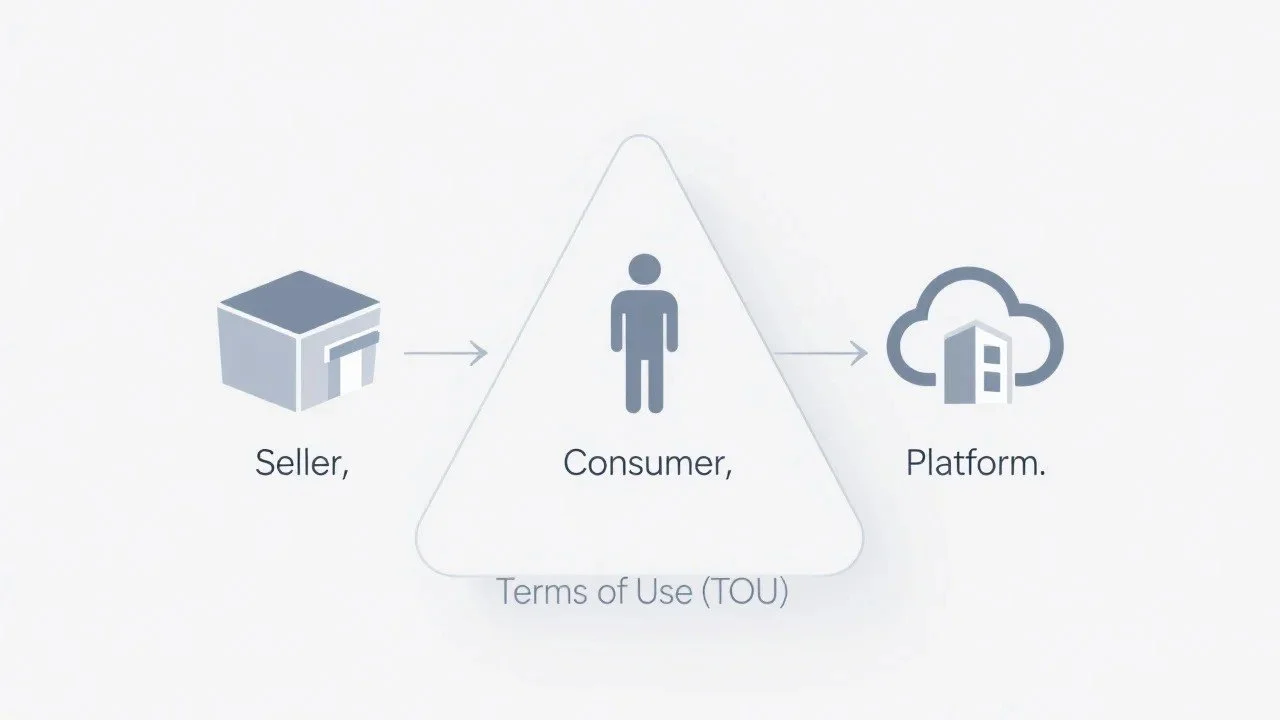[TOU Series 6] Surviving Terms of Use Disputes – Real-World Lessons on the Power of TOUs
Terms of Use (TOU) are no longer just formalities; they are strategic tools that can determine whether a company survives or collapses during a legal dispute. Recent cases highlight just how critical a well-crafted TOU can be in mitigating risk, preserving trust, and ensuring operational continuity.
The 23andMe data breach case attracted widespread attention when the company attempted to revise its TOU to prevent class action lawsuits following a major leak. Meanwhile, TikTok paid a $92 million settlement in a class action for privacy violations, and Alaska Airlines faced litigation after unilaterally changing its Flight Pass program terms. These incidents all underscore one thing: the strength and clarity of a company’s TOU can make or break its response to crisis.
Painful Lessons from Inadequate TOUs
In December 2023, 23andMe faced backlash for modifying its arbitration and class action waiver clauses following a massive data breach. While the legal intent was to avoid litigation by forcing users into individual arbitration, the attempt triggered significant consumer outrage and led to questions about the enforceability of such unilateral TOU changes. This case exemplifies how TOUs can serve as a shield – but only if wielded properly and transparently.
TikTok's $92 million settlement was linked to allegations that it collected user data without adequate notice or consent. Even after reaching a settlement, new claims emerged over in-app browser tracking, exposing the company to ongoing legal scrutiny. These developments illustrate the necessity of detailed, transparent data processing terms within a TOU.
Alaska Airlines encountered legal trouble after altering its Flight Pass subscription program terms in a way customers found detrimental. Though the airline claimed it had the contractual right to modify its terms, the lack of protective language acknowledging users’ reliance on prior terms fueled the class action. It revealed the importance of drafting change-of-terms provisions that anticipate user expectations and define fair notice procedures.
When a TOU Helps a Company Win
A fintech company in the U.S. faced thousands of user complaints after a service disruption. Fortunately, its TOU included a comprehensive arbitration clause, a class action waiver, and even a jury trial waiver. The company avoided litigation entirely and resolved disputes through confidential individual arbitration, cutting legal costs by over 90%. More importantly, its public reputation remained intact. TOUs drafted with enforceability in mind are a cornerstone of dispute prevention.
Marketplace platforms like Amazon have also mastered TOU architecture to allocate liability smartly. By clearly stating that product issues are the responsibility of third-party sellers, and embedding indemnity and limitation of liability provisions, they have successfully minimized platform liability even when disputes arise. Their TOUs enable them to act as neutral facilitators while deflecting legal claims.
Navigating Class Action Risk in the U.S.
The U.S. class action environment is aggressive, especially in consumer-focused states like California. Plaintiff-side attorneys work on contingency, meaning even minor disputes can quickly escalate. To mitigate this, many companies include class action waivers and binding arbitration clauses in their TOUs. However, enforceability requires careful attention to legal standards: the terms must not impose unfair burdens on users and must be clearly presented.
Effective arbitration clauses include:
A reputable forum, such as AAA or JAMS
Fair cost allocation, especially for low-value claims
An assurance of individual remedies through arbitration
Courts will strike down overreaching clauses, so precision in both language and user experience design is essential.
TOU Strategy by Business Type
B2B: In business-to-business contracts, TOUs can include stronger disclaimers and liability caps since consumer protection laws typically don’t apply. Important elements include exclusions for consequential damages, SLA definitions, IP ownership terms, and mutual indemnities. TOUs in this context should resemble formal contracts.
B2C: In direct-to-consumer models, companies must align with state-specific consumer protection laws. Automatic renewal terms, refund and cancellation policies, and disclosure requirements must be transparent and compliant. In states like California, auto-renewal laws are particularly strict.
Marketplaces: Marketplace TOUs must distinguish between the roles and responsibilities of the platform, sellers, and buyers. The platform should clearly define its limited role, disclaim liability for product issues, and outline mediation procedures. Additional policies like refund guarantees or customer support should be carefully bounded.
Key Items Every Legal or Product Team Must Check
Governing law and jurisdiction clauses (e.g., Delaware or New York)
Scope and limits of disclaimers, especially for indirect damages
Privacy language that complies with laws like GDPR, CCPA, COPPA
Internal consistency across TOU, privacy policy, and product flow
TOUs as Business Infrastructure
TOUs are not just legal checkboxes. They are business infrastructure. Weak terms can introduce existential risk. Strong, tailored TOUs signal legal maturity to investors, increase resilience during disputes, and even support valuation in due diligence.
Moreover, TOUs must evolve. A well-drafted TOU today may be outdated tomorrow if the business model or the legal environment shifts. Continuous updates are essential.
If your company is planning to enter the U.S. market or is already operating in it without a robust, reviewed Terms of Use, LexSoy can help. We specialize in drafting enforceable, business-aligned TOUs for startups and global companies alike. Reach out to us at contact@lexsoy.com.
© LexSoy Legal LLC. All rights reserved.

